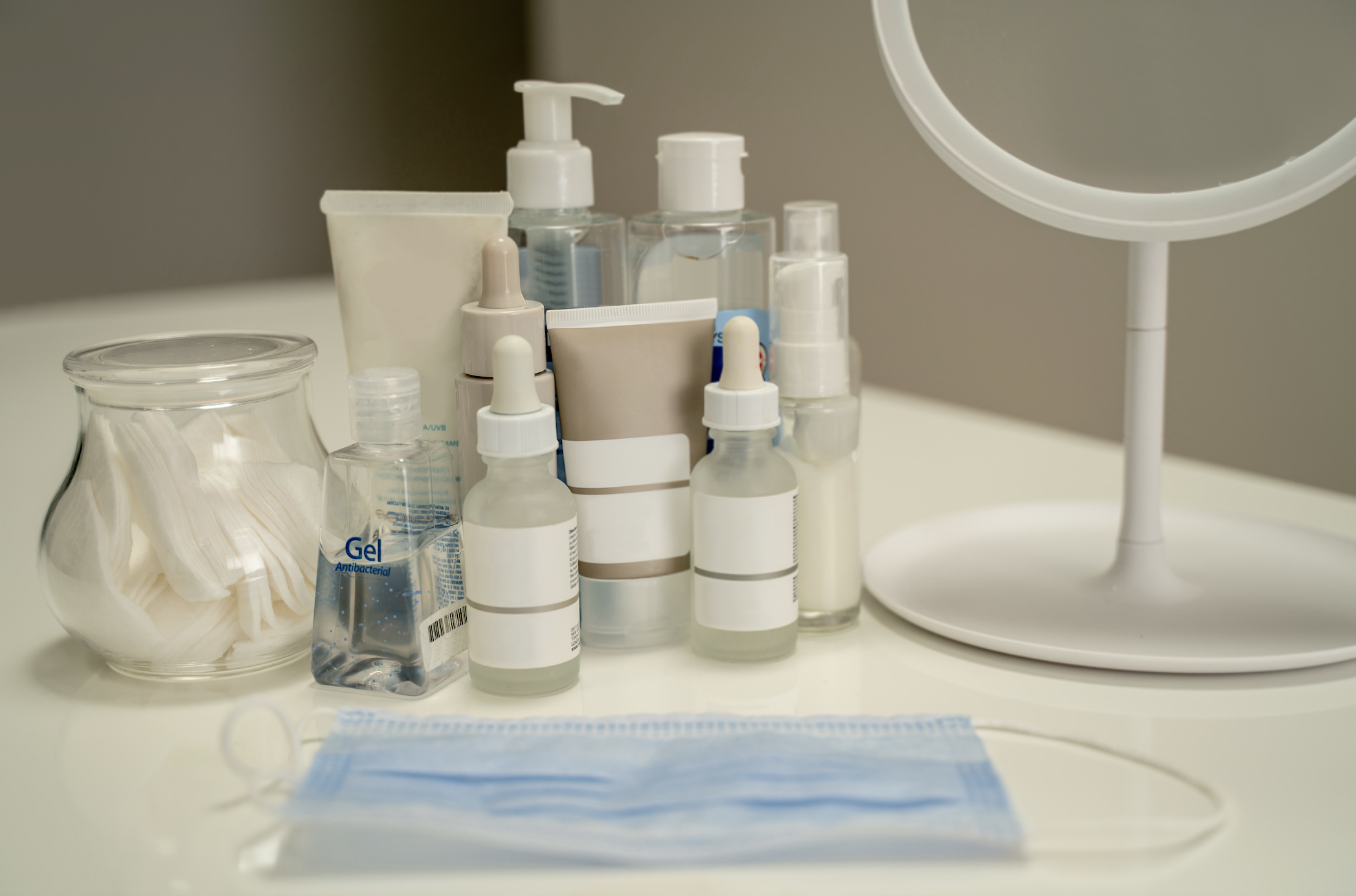
Benzoyl peroxide, otherwise known as BPO, has long been a standard treatment for acne patients, with prescription formulas and over-the-counter products widely available. However on Wednesday, March 6, Valisure, an independent quality assurance lab, released research that the incredibly popular ingredient can release “unacceptably high levels” of benzene, a known carcinogen. They have since issued a petition for the Food and Drug Administration to weigh in and recall products containing benzoyl peroxide, however the FDA has not commented at this time—and none of the brands cited in the study have commented on the study.
That begs the question: How concerned should you be about the products currently sitting on your bathroom shelf? “We are all constantly exposed to small amounts of benzene through our environment. Even with the exposure to the amounts in the report, the damage would take years, not days or weeks, to cause any noticeable harm,” board-certified dermatologist Dr. Munheeb Shah shares via Instagram. “Benzoyl peroxide products have never been shown to cause cancer in humans, but that doesn't mean it’s not possible.”

While additional exposure to benzene certainly is not a good thing, board-certified dermatologist Dr. Jessica Dowling exclusively tells Marie Claire that "no one should panic." She adds: "Although this is disheartening news about a very effective medication, these results were found by one lab. There have been no official recalls of these products and there has been no public response from the FDA." More confirmatory data will be needed."
That said, it’s never wrong to err on the side of caution. So, while a rightful alarm is raised across the cosmetics industry—and recalls are likely set to become commonplace—it’s best to retire your benzoyl peroxide products until more information is known. The good news: There are plenty of alternative acne-fighting ingredients available on the market that can address both clogged pores and bacteria. "Some of these ingredients that are available over the counter are: glycolic acid, sulfur, azelaic acid, salicylic acid, and hypochlorous acid," notes Dr. Dowling. "As always, I recommend consulting with your dermatologist if you are using any of these products as a prescription.
Shop Alternative Benzoyl Peroxide Acne Products
"Sulfur is know in the setting of acne to have not only an anti-inflammatory effect, but also a drying effect that’s useful for oily skin types and other types of acne lesions like whiteheads and blackheads," board-certified dermatologist and founder of GlamDerm Dr. Lian Mack previously told Marie Claire. That's in part why this drying lotion, which also contains salicylic acid is one of her favorites.
Glycolic acid is a great ingredient for many reasons. “Through exfoliation, glycolic acid can lessen the appearance of fine lines and wrinkles, diminish hyperpigmentation, and reduce acne,” says Dr. Anne Chapas, board-certified dermatologist and medical director at Union Square Dermatology. Incorporating a cleanser, such as this SkinFix option into your routine, will leave your pores tightening, complexion clearer (and brighter), and blackheads and whiteheads at bay.
Azelaic acid has recently shot to popularity for it's acne-fighting benefits, particularly for those who have sensitive skin. “It’s a mild exfoliating acid,” explains double board-certified adult and pediatric dermatologist and fellowship-trained cosmetic dermatologist Dr. Karan Lal. With this Naturium serum, you'll not only notice some help with acne inflammation and post-inflammatory hyperpigmentation, you'll also find that your skin's oil production is better balanced.
“Salicylic acid is both highly keratolytic and comedolytic, which means it not only dissolves dead skin cells on the surface of the skin, but it’s also able to get down into the pore, dissolve the oil, and break apart the debris inside that commonly leads to acne," board certified dermatologist Dr. Anna Karp previously told Marie Claire. That in mind, consider swapping your benzoyl peroxide cleanser with this SkinMedica option. It'll clean out debris from your pores without stripping your skin.
Using a retinoid, such as the over-the-counter derivative adapalene, can help speed up cell turnover. In turn, you'll find that pores are less likely to become clogged and result in acne blemishes. It might take a few weeks for your skin to adjust (it's normal to break out when you first start using a retinol), but the longterm results are well worth it.
While a spot treatment isn't a longterm solution for moderate to severe acne management, it can be beneficial in a pinch. This Hero Cosmetics spot treating pen is one of my personal treatments. It not only contains salicylic acid, but also tea tree oil, which is known to have anti-inflammatory benefits.
With a combination of alpha and beta-hydroxy acids, this is a tried and true acne-fighting serum. It's a dermatologist favorite, which is no surprise given its multi-benefit design. With continued use, you'll notice not only a reduction in acne, but also a decrease in fine lines, less hyperpigmentation, and better regulated oil production.







